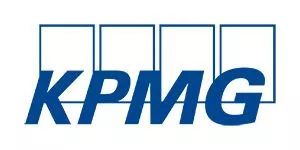Carbon Border Adjustment Mechanism's transitional phase is adopted
On 17 August 2023, the European Commission adopted the rules governing the implementation of the Carbon Border Adjustment Mechanism (CBAM) during its transitional phase which will run starting from 1 October 2023 until the end of 2025. The CBAM is intended to be one of the major means aiming to cut emissions by 55% in comparison with 1990 levels by 2030 under "Fit for 55" package.
The CBAM imposes a levy on certain goods imported from countries with lower emission reduction requirements (countries not participating in the EU ETS). Its primary aim is to minimize the 'carbon leakage' which occurs when the EU businesses transfer carbon-extensive production to other countries with less stringent climate policies, or when EU goods are replaced by more carbon- intensive imported products. Since the prices of the imported goods include lesser (if any) carbon price (i.e., production costs incurred due to fulfilment of the EU emission reduction requirements), the consumers tend to prefer carbon-intensive goods produced abroad over domestic ones. The CBAM levy is intended to level such difference.
Transitional phase overview
The new rules will initially apply to certain carbon-intensive goods and selected precursors which EU CN codes are specified in the EU CBAM Regulation (cement, electricity, fertilisers, aluminium, iron, steel and hydrogen sectors). When the CBAM is implemented, the scope of application is expected to extend to all sectors subject to EU emissions trading.
During the transitional phase, no CBAM levy will be imposed. Nevertheless, starting from 1 October 2023 the CBAM goods importers will have to collect reportable data and submit it on a quarterly basis (first deadline is 31 January 2024) to CBAM Transitional Registry.
The CBAM declarations should include the following:
- the imported quantity of CBAM goods specified per country of origin.
- the direct and indirect (if applicable) embedded emissions contained in the CBAM goods.
- the carbon price due in the country of origin (if any).
CBAM next steps
Starting from 1 January 2026, only EU registered declarants will be entitled to import CBAM goods.
To ensure compliance with the new CBAM rules, the EU importers will have to:
- obtain an authorization to import CBAM goods from national authorities.
- purchase sufficient emission allowances for imported embedded emissions.
- declare on a yearly basis the CBAM goods imported into the EU in the preceding year and surrender the number of CBAM certificates that corresponds to the amount of greenhouse gas emissions embedded in the products.
Considering implementation of CBAM, we recommend to review the existing supply chain, consider whether the goods imported are covered by the CBAM Regulation and verify their production origin to proceed with setting up the required reporting process.
How can KPMG assist?
Should you require further clarifications on the provisions of the EU CBAM Regulation and its application, please contact our trusted advisors in the Indirect Tax Department at KPMG Cyprus.
KPMG's Indirect Tax team provides advice and assistance at the Cyprus and international level. We structure our effort to dovetail with your business issues and strategy. Our focus is on supplying value adding and pragmatic advice rather than just a list of recommendations.
Our tax professionals are able to review your company's current tax position and provide relevant advice and planning on a range of indirect taxes, including VAT, customs duties and excise taxes (such as tax audits, reorganizations and acquisitions, etc.). Furthermore, we can help your company with its administrative obligations (including, CBAM compliance obligations) and contacts with administrative bodies.
The content of this article is intended to provide a general guide to the subject matter. Specialist advice should be sought about your specific circumstances.

